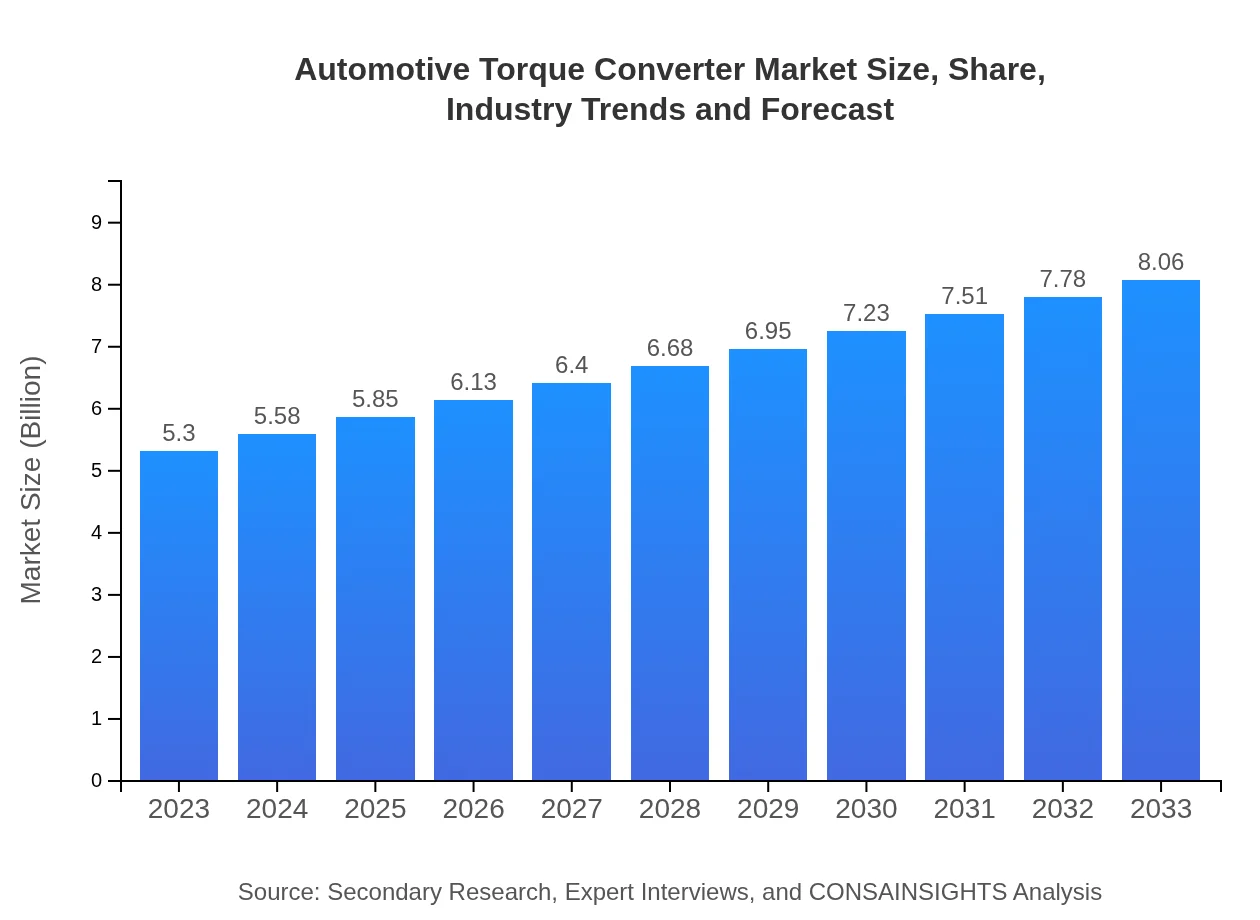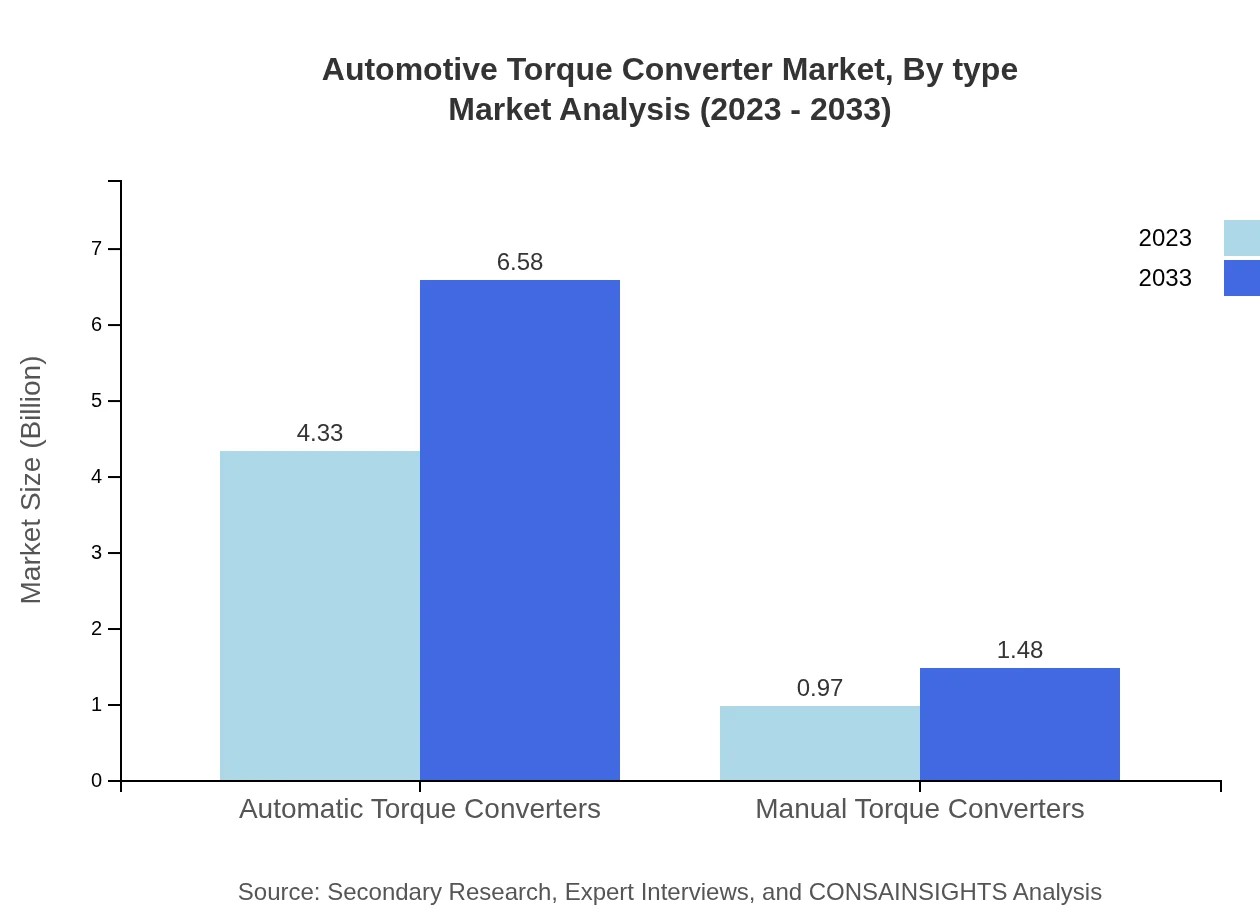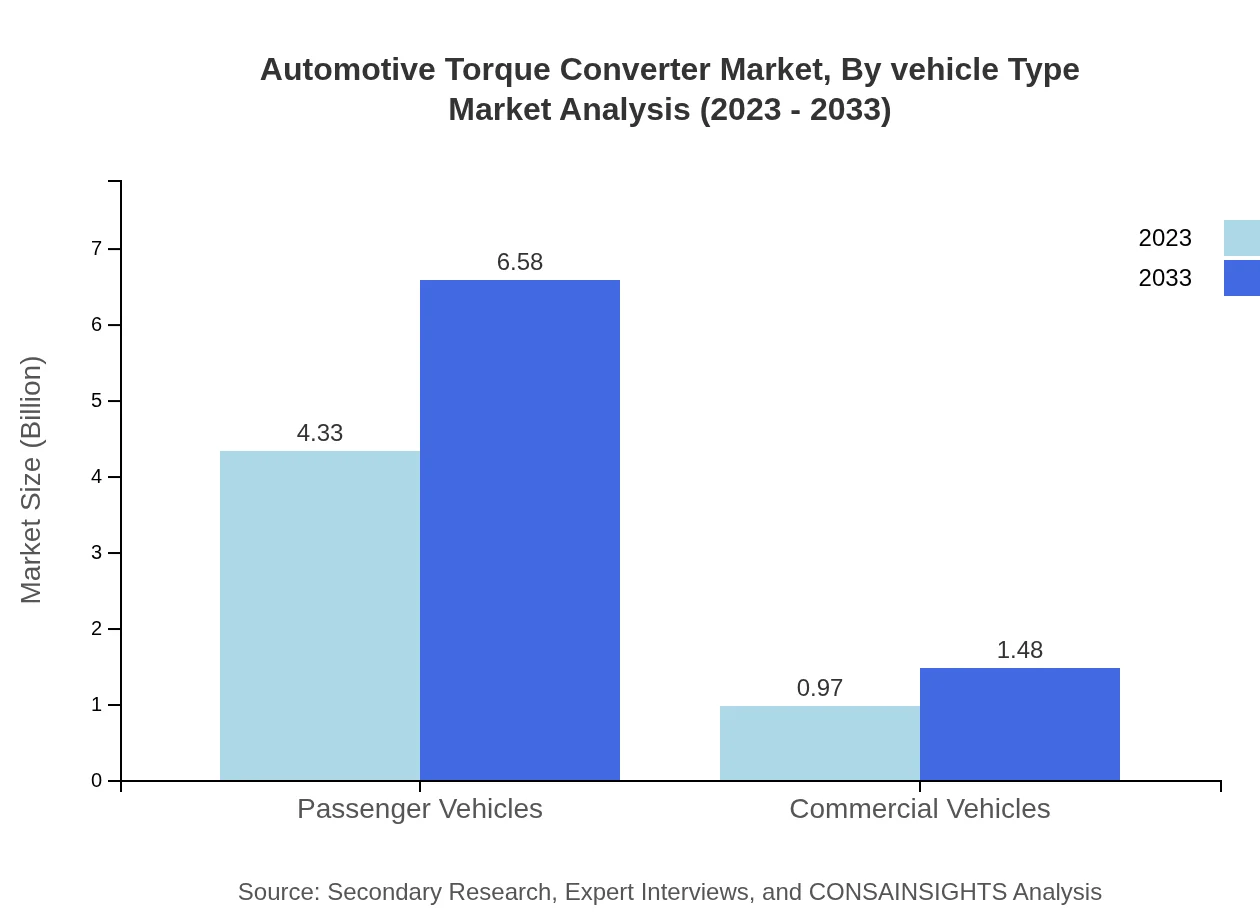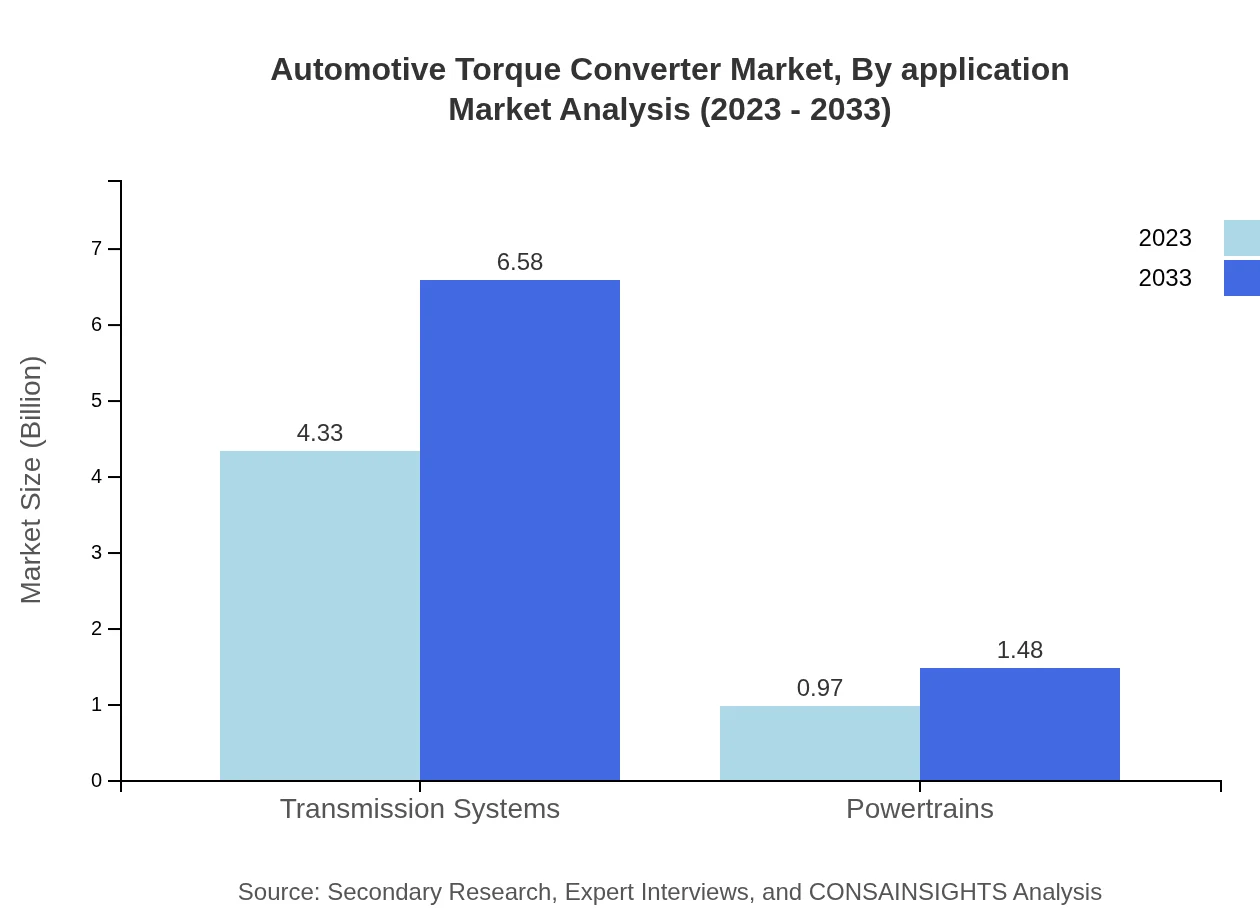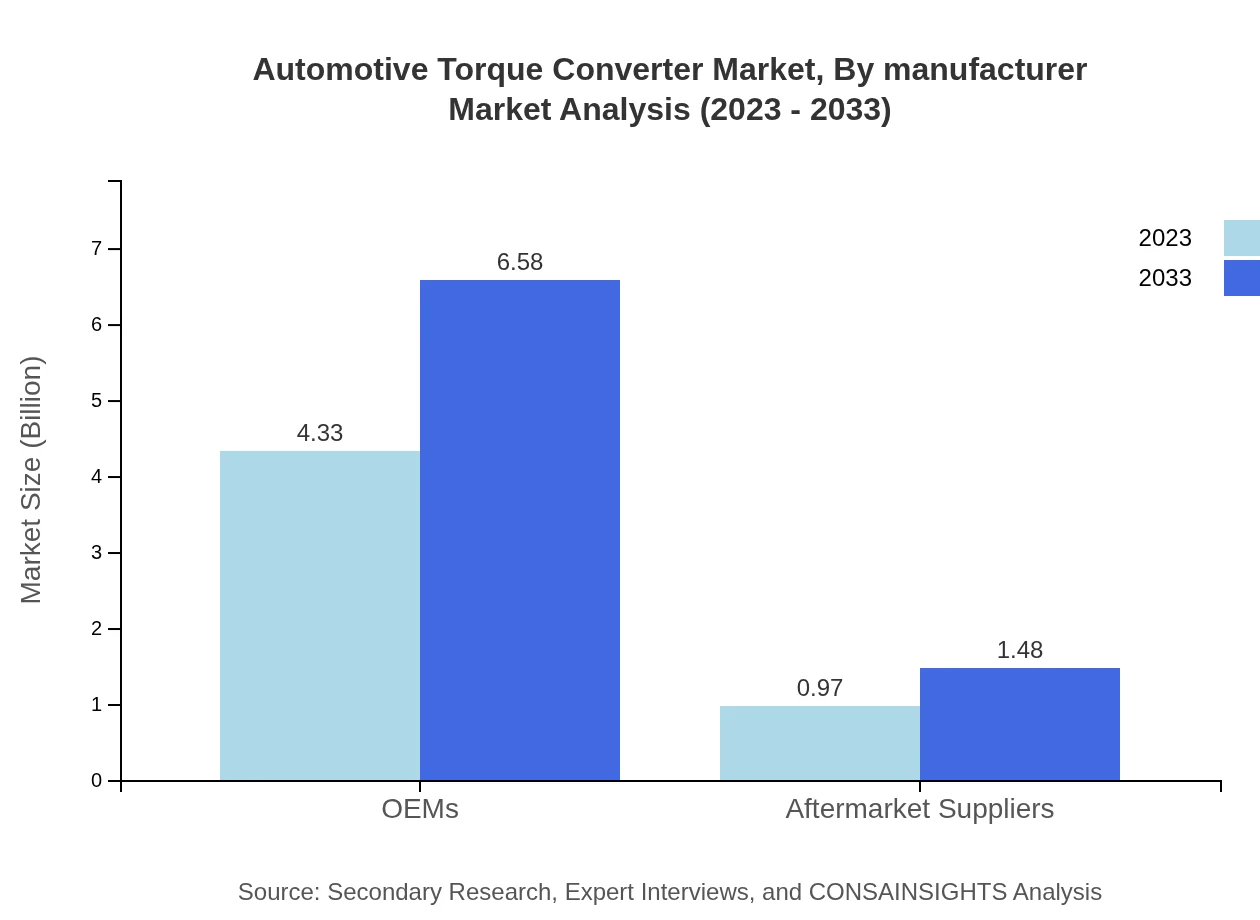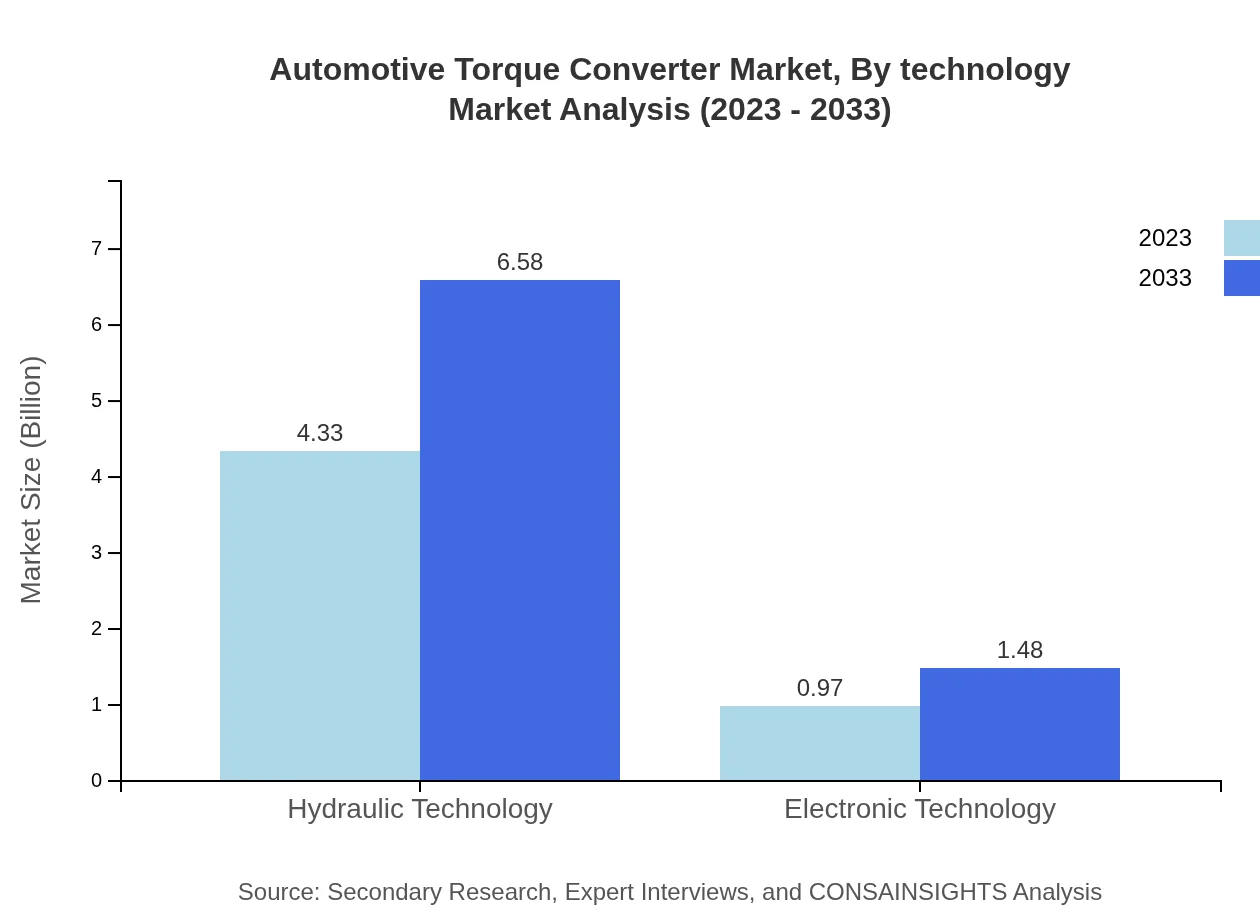Automotive Torque Converter Market Report
Published Date: 02 February 2026 | Report Code: automotive-torque-converter
Automotive Torque Converter Market Size, Share, Industry Trends and Forecast to 2033
This report provides a comprehensive analysis of the Automotive Torque Converter market, covering insights on market size, trends, segmentation, regional performance, and competitive landscape. The forecast period spans from 2023 to 2033, aiming to inform stakeholders of future opportunities and challenges in the market.
| Metric | Value |
|---|---|
| Study Period | 2023 - 2033 |
| 2023 Market Size | $5.30 Billion |
| CAGR (2023-2033) | 4.2% |
| 2033 Market Size | $8.06 Billion |
| Top Companies | General Motors, Toyota Motor Corporation, ZF Friedrichshafen AG, Aisin Seiki Co., Ltd., BorgWarner Inc. |
| Last Modified Date | 02 February 2026 |
Automotive Torque Converter Market Overview
Customize Automotive Torque Converter Market Report market research report
- ✔ Get in-depth analysis of Automotive Torque Converter market size, growth, and forecasts.
- ✔ Understand Automotive Torque Converter's regional dynamics and industry-specific trends.
- ✔ Identify potential applications, end-user demand, and growth segments in Automotive Torque Converter
What is the Market Size & CAGR of Automotive Torque Converter market in 2023?
Automotive Torque Converter Industry Analysis
Automotive Torque Converter Market Segmentation and Scope
Tell us your focus area and get a customized research report.
Automotive Torque Converter Market Analysis Report by Region
Europe Automotive Torque Converter Market Report:
Europe's automotive torque converter market is projected to grow from $1.29 billion in 2023 to $1.96 billion by 2033. Growth is bolstered by stringent regulations driving manufacturers to innovate toward more efficient transmission systems. Furthermore, the focus on sustainability and reducing emissions propels increases in electric and hybrid vehicle production, which utilize advanced torque converter technologies.Asia Pacific Automotive Torque Converter Market Report:
The Asia Pacific region is anticipated to exhibit robust growth, with the market size reaching $1.05 billion in 2023 and projected to grow to $1.59 billion by 2033. This growth is driven by the increasing production of vehicles, particularly in countries like China and India, where automotive manufacturing is booming. The demand for fuel-efficient vehicles is further propelling the adoption of torque converters in this region.North America Automotive Torque Converter Market Report:
The North American market is poised to rise from $1.97 billion in 2023 to $2.99 billion by 2033. This trajectory is supported by a strong automobile industry in the United States and growing investments in innovative technologies to enhance vehicle performance. The increasing consumer preference for automatic vehicles and rising production of electric vehicles will play a significant role in this growth.South America Automotive Torque Converter Market Report:
In South America, the automotive torque converter market is estimated to be valued at $0.52 billion in 2023, expanding to $0.79 billion by 2033. Growth in the automotive sector in Brazil and Argentina is expected to drive demand, with a shift towards automatic transmissions helping to bolster market growth. Local manufacturers are also adapting to meet increasing consumer demands, further supporting expansion.Middle East & Africa Automotive Torque Converter Market Report:
In the Middle East and Africa, the market is expected to increase from $0.48 billion in 2023 to $0.73 billion by 2033. Developing automotive industries in countries like South Africa and the UAE are key growth factors, with increasing investments in transportation and infrastructure driving market demands for torque converters. Furthermore, the region's mineral wealth supports automotive manufacturing and technology advancements.Tell us your focus area and get a customized research report.
Automotive Torque Converter Market Analysis By Type
In 2023, the automatic torque converters segment is anticipated to lead the market at approximately $4.33 billion, with substantial growth expected to $6.58 billion by 2033. Manual torque converters, though smaller in size at $0.97 billion in 2023, are also expected to grow to $1.48 billion by 2033. The strong preference for automatic transmission in passenger vehicles is key to the dominance of the automatic segment.
Automotive Torque Converter Market Analysis By Vehicle Type
Passenger vehicles continue to dominate the automotive torque converter market with a share of approximately 81.61% in 2023, maintaining this position through to 2033. Commercial vehicles also play a significant role but are projected to remain at an 18.39% share. The growth in both segments correlates with trends in vehicle production and consumer preference for convenience and performance.
Automotive Torque Converter Market Analysis By Application
The automotive torque converter market displays diverse applications spanning passenger and commercial vehicles. With passenger vehicles commanding the majority, the growing trend towards more complex transmission systems fuels demand. Improvements in technology are allowing for better performance in both application types, thereby enhancing the overall market outlook.
Automotive Torque Converter Market Analysis By Manufacturer
Top manufacturers have a significant influence on the automotive torque converter market dynamics. Their innovations, quality control, and technological advancements are driving the overall market growth and shaping consumer preferences. Continued collaboration in research and development will be pivotal as the industry adapts to meet future challenges.
Automotive Torque Converter Market Analysis By Technology
The market is also segmented by technology into hydraulic and electronic systems. The hydraulic technology segment is dominant, projected to account for 81.61% of the market in 2023, with a steady growth forecast. Electronic technology, while smaller, is growing due to advancements that allow for better integration into modern automotive systems.
Automotive Torque Converter Market Trends and Future Forecast
Tell us your focus area and get a customized research report.
Global Market Leaders and Top Companies in Automotive Torque Converter Industry
General Motors:
General Motors is a leading American automotive manufacturer known for producing a variety of vehicles and components, including advanced torque converters that enhance performance and efficiency.Toyota Motor Corporation:
Toyota is a global leader in automotive manufacturing with a focus on innovation and hybrid technology, contributing significantly to the development of next-gen torque converters.ZF Friedrichshafen AG:
ZF is a German engineering company specializing in driveline and chassis technology, known for its cutting-edge torque converter solutions used in various vehicle models.Aisin Seiki Co., Ltd.:
Aisin Seiki is a major automotive parts supplier based in Japan, recognized for high-quality torque converters engineered for efficiency and reliability in vehicles.BorgWarner Inc.:
BorgWarner is an American automotive supplier that develops advanced propulsion systems and technologies, including a diverse range of torque converters.We're grateful to work with incredible clients.









FAQs
What is the market size of the Automotive Torque Converter?
The global automotive torque converter market is currently valued at $5.3 billion with a projected compound annual growth rate (CAGR) of 4.2%. This growth reflects increasing demand for more efficient automotive transmission systems.
What are the key market players or companies in the Automotive Torque Converter industry?
Key players in the automotive torque converter industry include manufacturers like Aisin Seiki, ZF Friedrichshafen AG, and BorgWarner Inc. These companies lead in innovation and production capacity, holding significant market shares.
What are the primary factors driving the growth in the automotive torque converter industry?
Factors driving growth in the automotive torque converter industry include advancements in transmission technology, rising vehicle sales, and increasing demand for fuel-efficient vehicles, which require sophisticated torque converter systems.
Which region is the fastest Growing in the automotive torque converter market?
North America is expected to be the fastest-growing region, with market size increasing from $1.97 billion in 2023 to $2.99 billion by 2033, reflecting a strong automotive sector and technological advancements in transmissions.
Does ConsaInsights provide customized market report data for the automotive torque converter industry?
Yes, ConsaInsights provides customized market report data tailored to the automotive torque converter industry, including segment-specific analysis and regional market insights to meet unique client requirements.
What deliverables can I expect from this automotive torque converter market research project?
From this market research project, you can expect comprehensive market analysis, segment breakdowns, competitive landscape reviews, and forecasting reports covering key industry trends and projections.
What are the market trends of automotive torque converters?
Current trends in the automotive torque converter market include the shift towards automatic transmissions, increased adoption of hydraulic technology, and innovations in electronic torque converter systems to enhance performance.

